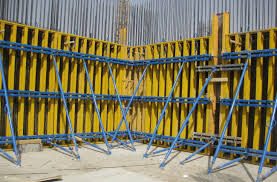Гру . 22, 2024 06:44 Back to list
formwork for circular columns manufacturer
Formwork for Circular Columns An Overview for Manufacturers
In the construction industry, the importance of formwork cannot be overstated, especially when it comes to shaping circular columns. As a prominent structural element that supports loads and enhances the aesthetic appeal of buildings, the effective design and manufacturing of formwork for circular columns is essential. This article aims to explore the various aspects of formwork for circular columns, highlighting the manufacturing processes, materials used, and the benefits of specialized formwork systems.
Understanding Circular Columns
Circular columns are widely used in architectural designs due to their ability to distribute loads evenly and their aesthetic versatility. They can be seen in various structures, including residential buildings, commercial complexes, bridges, and parking garages. To achieve the desired structural integrity and visual appeal, precise formwork is necessary to mold concrete into the required circular shape.
The Role of Formwork
Formwork serves as a temporary or permanent mold for freshly poured concrete. It provides support and containment during the curing process, preventing leakage and ensuring that the concrete assumes the desired shape. For circular columns, formwork needs to be both robust and flexible to accommodate the curvature of the column while ensuring stability.
Manufacturing Process
The manufacturing of formwork for circular columns typically involves several key steps
1. Design and Engineering The first step involves careful planning and engineering. Manufacturers must consider factors such as the size, height, and load-bearing capacity of the column, alongside the specific requirements of the project. Advanced software tools are often employed to create detailed designs that meet the technical standards.
2. Material Selection The choice of materials is critical in formwork manufacturing. Common materials include plywood, steel, and plastic. Plywood is often favored for its versatility and cost-effectiveness, while steel provides a durable and reusable option. Plastic formwork systems have also gained popularity due to their lightweight design and resistance to moisture.
3. Fabrication Once the design is finalized and materials are selected, the fabrication process begins. This includes cutting, shaping, and assembling the materials into the desired formwork structure. Precision is key here, as even minor inaccuracies can affect the final shape of the column.
formwork for circular columns manufacturer

4. Finishing Touches After the basic formwork is assembled, additional features may be added to enhance functionality. This can include reinforcement brackets, adjustable clamps, and alignment guides to ensure that the formwork remains stable during the pouring of concrete.
5. Quality Control Rigorous quality control checks are conducted throughout the manufacturing process to ensure that all components meet the required specifications. This step is crucial to guarantee the safety and reliability of the formwork.
Benefits of Specialized Formwork Systems
Investing in specialized formwork systems for circular columns offers numerous advantages
- Efficiency Custom formwork means faster setup times and reduced labor costs. Manufacturers can produce multiple columns in a shorter timeframe, benefiting both the contractor and the overall project timeline.
- Versatility Specialized formwork can be designed to accommodate various diameters and heights, making it adaptable to different construction needs.
- Enhanced Finish Quality Custom formwork allows for smooth surfaces and precise dimensions, resulting in a polished final product that minimizes the need for additional finishing work.
- Sustainability Reusable formwork systems reduce material waste and lower costs over time. Manufacturers that focus on sustainable practices can also enhance their competitive edge in a market increasingly focused on eco-friendly solutions.
Conclusion
In conclusion, the manufacturing of formwork for circular columns is a specialized field that blends engineering, material science, and craftsmanship. With the right design, materials, and processes, manufacturers can create efficient, durable, and versatile formwork systems that not only support structural integrity but also enhance the aesthetic appeal of buildings. As the construction industry continues to evolve, the demand for high-quality formwork solutions will remain pivotal in shaping the future of architectural design and structural integrity.
-
OEM Wall Formwork & Shuttering: Flexible & Curved Solutions
NewsAug.24,2025
-
Adjustable Heavy Duty Props for Slab Formwork | Strong & Reliable Support
NewsAug.23,2025
-
Adjustable Heavy Duty Props for Slab Formwork - Strong & Safe Support
NewsAug.22,2025
-
Formwork Spring Clamp Factories: Quality & Bulk Supply
NewsAug.21,2025
-
Premium Ringlock Scaffolding | China Manufacturer & Supplier
NewsAug.19,2025
-
Efficient Table Formwork for Fast Slab Construction & Reusability
NewsAug.18,2025